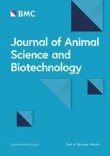 “Cannabis sativa, commonly known as marijuana, contains a pool of secondary plant metabolites with therapeutic effects.
“Cannabis sativa, commonly known as marijuana, contains a pool of secondary plant metabolites with therapeutic effects.
Besides Δ9-tetrahydrocannabinol that is the principal psychoactive constituent of Cannabis, cannabidiol (CBD) is the most abundant nonpsychoactive phytocannabinoid and may represent a prototype for anti-inflammatory drug development for human pathologies where both the inflammation and oxidative stress (OS) play an important role to their etiology and progression.
To this regard, Alzheimer’s disease (AD), Parkinson’s disease (PD), the most common neurodegenerative disorders, are characterized by extensive oxidative damage to different biological substrates that can cause cell death by different pathways. Most cases of neurodegenerative diseases have a complex etiology with a variety of factors contributing to the progression of the neurodegenerative processes; therefore, promising treatment strategies should simultaneously target multiple substrates in order to stop and/or slow down the neurodegeneration.
In this context, CBD, which interacts with the eCB system, but has also cannabinoid receptor-independent mechanism, might be a good candidate as a prototype for anti-oxidant drug development for the major neurodegenerative disorders, such as PD and AD. This review summarizes the multiple molecular pathways that underlie the positive effects of CBD, which may have a considerable impact on the progression of the major neurodegenerative disorders.”
https://www.ncbi.nlm.nih.gov/pubmed/32210795
“The present review provided evidence that the nonpsychoactive phytocannabinoids CBD could be a potential pharmacological tool for the treatment of neurodegenerative disorders; its excellent safety and tolerability profile in clinical studies renders it a promising therapeutic agent.
The molecular mechanisms associated with CBD’s improvement in PD and AD are likely multifaceted, and although CBD may act on different molecular targets all the beneficial effects are in some extent linked to its antioxidant and anti-inflammatory profile, as observed in in vitro and in vivo studies. Therefore, this review describes evidence to prove the therapeutical efficacy of CBD in patients affected by neurodegenerative disorders and promotes further research in order to better elucidate the molecular pathways involved in the therapeutic potential of CBD.”
https://www.frontiersin.org/articles/10.3389/fphar.2020.00124/full
 “Many epilepsy patients are refractory to conventional antiepileptic drugs.
“Many epilepsy patients are refractory to conventional antiepileptic drugs.
 “Cannabis has been used for thousands of years in many cultures for the treatment of several ailments including pain.
“Cannabis has been used for thousands of years in many cultures for the treatment of several ailments including pain. “Considering data from in vitro and in vivo studies,
“Considering data from in vitro and in vivo studies,  “Cannabis benefits patients with inflammatory bowel disease (IBD).
“Cannabis benefits patients with inflammatory bowel disease (IBD). “Cannabis sativa, commonly known as marijuana, contains a pool of secondary plant metabolites with therapeutic effects.
“Cannabis sativa, commonly known as marijuana, contains a pool of secondary plant metabolites with therapeutic effects. “The synthetic atypical cannabinoid Abn-CBD, a
“The synthetic atypical cannabinoid Abn-CBD, a  “Recently, several studies have reported that the pharmacological effects exerted by
“Recently, several studies have reported that the pharmacological effects exerted by  “In the sports domain, cannabis is prohibited by the World Anti-Doping Agency (WADA) across all sports in competition since 2004. The few studies on physical exercise and cannabis focused on the main compound i.e. Δ9-tetrahydrocannabinol.
“In the sports domain, cannabis is prohibited by the World Anti-Doping Agency (WADA) across all sports in competition since 2004. The few studies on physical exercise and cannabis focused on the main compound i.e. Δ9-tetrahydrocannabinol.  “The oil from industrial hemp seeds (
“The oil from industrial hemp seeds (